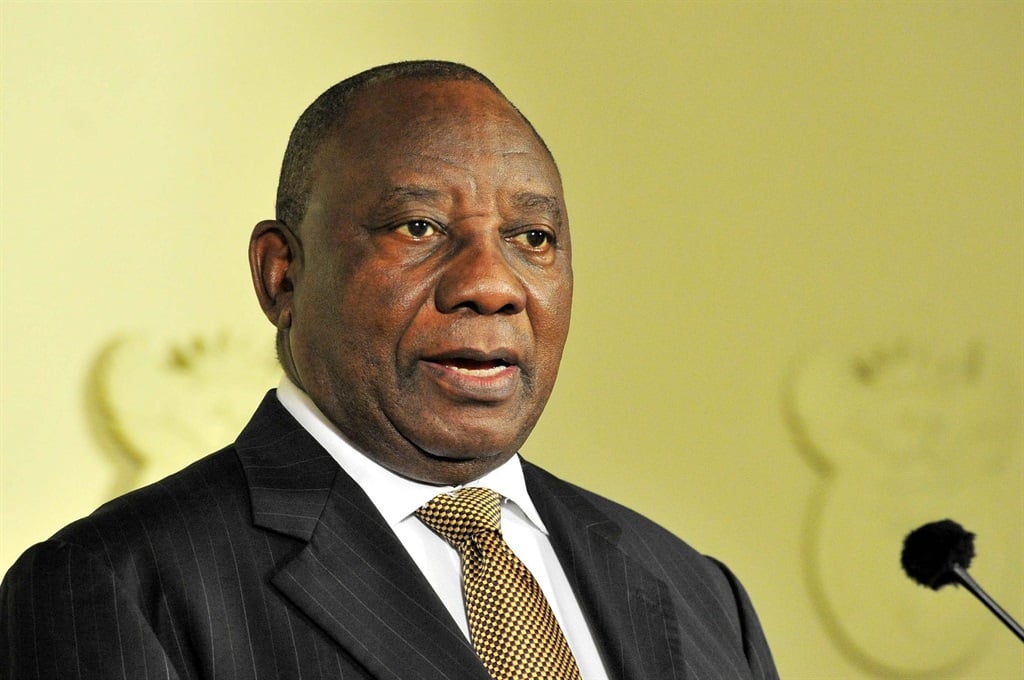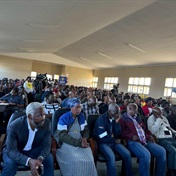
If South Africa is to successfully pull off the National Health Insurance (NHI) initiative it’s going to take a collective, concerted effort from all stakeholders.
This was said by President Cyril Ramaphosa, who has thrown his weight behind the country’s proposed attempt at turning around its healthcare sector
“The NHI is fundamentally about social justice. Providing universal and quality health care for all is not only a matter of moral principle,” he told the high-level officials who attended the national health insurance consultative meeting in Tshwane on Friday.
The meeting was attended by Justice Minister Michael Masutha, Health Minister Aaron Motsoaledi, Gauteng Premier David Makhura, politicians, stakeholders and health professionals.
“This meeting is providing us with an opportunity to broaden consensus around the core principles that will define the NHI,” Ramaphosa said.
“More importantly, we wish to emerge out of this meeting having collectively considered and exchanged ideas about the proposed reforms in the legislative and regulatory framework of our healthcare system.”
The positives
Ramaphosa said the country had achieved a lot in terms of ensuring access to healthcare since 1994.
“We abolished the apartheid structures of the health care system, rolled out primary health care facilities to areas where they were needed most, and waged an effective battle against HIV and Aids,” he said.
“We also did a lot to dramatically improve the social and political determinants of healthcare – including the near universal provision of clean water to millions of the poor, decent education and the provision of social grants to poor households.”
Nuts and bolts
The Sustainable Development Goals, adopted in 2015, spell out South Africa’s responsibility to achieve universal health coverage, including financial risk protection, access to quality essential health care services and access to safe, effective, quality and affordable essential medicines and vaccines for all.
“It is inconceivable that anyone could argue against the need for every South African to have access to health services on the basis of need and not on their ability to pay,” said Ramaphosa.
He described South Africa’s health system as a “racialised two-tier” system sustained on the basis of uneven distribution of resources.
“The National Health Insurance is meant to ensure that all our people, black and white, rich and poor, receive the quality health services they need without the imposition on them of financial hardship. Our people should be able to access a comprehensive range of health services, including prevention, treatment, rehabilitation and others. These services – no matter who is providing them – should be of good quality,” he said.
The problems
The Office of Health Standards Compliance recently tabled a report to Parliament’s Portfolio Committee on Health that indicated that, on average, health facilities inspected met less than 50% of the required quality health standards.
“This is totally unacceptable,” said Ramaphosa.
He wanted those attending the meeting to come up with ways to address the severe shortage of and challenges faced by both essential employees, such as doctors and nurses, and support staff such as radiographers and porters.
“We must be clear that the resources needed to provide quality health care services represent investment rather than consumption, particularly if you consider the benefits of a healthy population and a productive workforce.”
Ramaphosa believes that the NHI could be affordable if it was properly designed and managed.
Foundations already in place
Achieving universal health coverage was not just about spending more money, said Ramaphosa.
The country already had many healthcare resources. These needed to be used efficiently and fairly to scale up the supply of quality health services for everyone, with enough trained and motivated health workers, and to transform the health system to address the needs of all South Africans.
“We need to build on the strengths of the public health system which, notwithstanding its persistent challenges, has helped improve the life expectancy of our people, successfully turned the tide in our battle against HIV and Aids and rolled out the massive health infrastructure we now have across the country. The NHI can and will be a success.,” he said.
The numbers
South Africa currently spends R420 billion – 8.5% of domestic funding – on healthcare.
“This is more than any other middle-income country, and it is very close to advanced economies such as the United Kingdom and Canada,” said Ramaphosa.
From 2019, once the bill is passed, the NHI will be implemented incrementally until the entire country is covered by 2025.
“We envisage a transformed health system that will not just have better health outcomes, but one that will also save money for individuals, households and the country as a whole,” said Ramaphosa.




 Publications
Publications
 Partners
Partners








